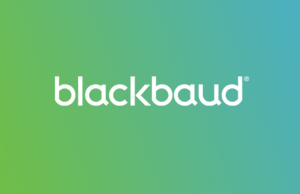It’s not unusual for a nonprofit to do a lot of mailings. It is uncommon when the charity is mailing for someone else, such as what Woburn, Mass.-based nonprofit CMARC is doing after it purchased an advertising direct mail franchise.
CMARC bought the franchise from Garden Grove, Calif.-based direct marketing firm Money Mailer. CMARC plans to turn one of the staff community contact people into a sales person who aids businesses with direct mail options.
The range of business franchises that nonprofits operate seems to be getting wider — from the well-known Ben & Jerry’s ice cream Partner Shops to nonprofits installing wheelchair ramps and delivering candy baskets.
CMARC’s deal will probably break even this year and managers hope it will bring in between $200,000 and $300,000 annually within five years Ð roughly one-third of the organization’s current $9-million annual budget.
CMARC serves more than 300 disabled people a day with vocational programs. Money Mailer deals with nearly 300 franchise locations nationwide.
"Money is tight. We haven’t received a cost of living increase in Massachusetts in 19 years," said Sheri McCann, CEO and president of CMARC. "We work with fundraising and are really having a difficult time meeting our needs, so we’re looking for other options."
The advertising function is somewhat related to CMARC’s mission. The organization provides job opportunities for disabled citizens in the community. The link is helping local businesses grow. "The function fits into our profile," McCann said.
CMARC already works with local restaurants, dry cleaners, and other businesses. The new effort assesses the goals of that business and determines which direct marketing approach would help, whether it is coupons in the mail, individual post cards, or interactive strategies with cell phones.
Money Mailer provides the editorial work and printing while the nonprofit sells the concepts.
"CMARC is entrenched in the Woburn community, so that helps our franchise services," said Dennis Jenkins, vice president of franchise licensing for Money Mailer. "They develop the campaign, and send the order to us while we do the stuffing, Internet placement, and truck the mailings to the post office. The nonprofit doesn’t have to work beyond the selling aspect."
Social Franchise Ventures, LLC, in Washington, D.C., brought the two parties together. While there is an estimated 900,000 franchise opportunities, Ventures lists fewer than 100 nonprofit-owned franchises.
"We believe partnering with a franchise brand that leverages a nonprofit’s strengths and assets is paramount to a successful social franchise venture," said Doug Sudell, CFE, of Social Franchise Ventures. "It is of the utmost importance that a nonprofit use a highly disciplined approach when selecting a brand because that can significantly increase their likelihood of success."
Figures show that franchised businesses provide more than 11 million jobs, or 8.1 percent of the national private-sector workforce with an annual payroll of $278.6 billion, or 5.3 percent of all private-sector payrolls in the United States.
The Evergreen Commons Senior Center, in Holland, Mich., is trying to tie into some of that potential. Evergreen is teaming with American Ramp Systems, a national provider of wheelchair ramps and portable roll-in wheelchair showers. Evergreen will evaluate requests for the items and install the ramp. American Ramp Systems is headquartered in South Boston, Mass.
Evergreen hasn’t turned a profit at this point, but Larry Erlandson, the organization’s president, said it might bring in $20,000 this year. He believes $100,000 a year is a realistic goal.
"We’ve seen a significant growth in the third year," Erlandson said. "We had to work up to that goal. Our other business took three years before producing $25,000, and then $50,000."
The key factors in coordinating a franchise is a link to the organization’s activities and the costs of activity or goods compared to potential income.
"Our nonprofit has a large in-home care service," Erlandson said. "We saw that we could have a product that was in demand and could connect it to our already existing activities."
Evergreen contacts rehab centers, veteran administration facilities, and hospitals. When patients require a ramp, Evergreen does a home evaluation.
"We make calls on patients, while American Ramp performs national advertising and offers an 800 number," he said. "They direct calls to us and do prescreening."
Evergreen set up a separate limited liability corporation (LLC) with a general manager. "Our attorneys believed that keeping the business separate helps the parent organization because it creates a distance," he said.
Few in the home care sector had an awareness of this product, he explained. Many test callers to his agency thought his organization already had such equipment.
"This was a necessity," he said. "Outside of hiring a carpenter to build a winch ramp, no steel ramp was available. This was an opportunity to be on the leading edge of a new product."
To reach the potential $100,000 annual figure, Erlandson had to plan on a series of costs. The goods sold was one cost, while the general manager’s salary was another. An installer was hired on a commission basis. The organization must pay a royalty, advertising, and bookkeeping fee. Evergreen had to rent warehouse space and a van to haul the product. Initially, the franchise fee was approximately $44,250 for a territory of 1 million people.
When CMARC researched the arrangement with Money Mailer, McCann found initial franchise fees existed in a wide ranged between six and seven figures. She opted for Money Mailer for around $40,000. "It’s a low initial investment and we don’t need a storefront for the direct mail operation," she said.
Money Mailer’s Jenkins explained that a franchise includes a number of households in a given location. The cost of producing ads varies. Those costs include printing and artwork for an ad going to 10,000 people of around $116. The nonprofit could conceivably charge $400.
Extra equipment isn’t necessary. CMARC needed only a computer, a spot in the office, and a Windows XP Professional System.
Gaining income might be secondary to some goals. For the New Brighton, Pa.-based Beaver County Rehabilitation Center (BCRC) Inc., an arrangement with Candy Bouquet brings extra tasks to the workers the nonprofit aims to train.
"Our primary concern is offering work for our mission," said Pat Healey, director of business development. "Our primary goal when we purchased the Candy Bouquet franchise was to serve our mission by offering work tasks to further individual vocational independence and growth for our clients."
BCRC has around 160 people a day in an employment program that involves in-house packaging, mailing, and small assembly. The organization serves 400 people yearly in different programs both in house and throughout the community.
"BCRC doesn’t see profits in the same way as individual franchise owners," she said. "We use our business to demonstrate our motto, ‘We teach work with work.’"
BCRC runs a gift delivery system so the candy part fits into an existing delivery operation throughout Beaver County.
"What appealed to us is the 15 different job tasks," she said. "Not all our clients can handle every step so there might be people specializing in cutting or putting candy in the basket for example."
Costs have to work out to avoid hurting the nonprofit. The initial franchise fee was around $20,000 with some donation of items from the Little Rock, Ark.-based Candy Bouquet International, Inc. The company offers either an association fee or a commission. BCRC pays the association fee, which could be $3,000 a year.
Candy Bouquet doesn’t charge royalties, and the association fee is based on the size of the franchise determined by the number of people in a ZIP code. BCRC bought all the ZIP codes in Beaver County for around $170 a month.
Funds are generated through sales and treated as a floral and market business. "We don’t put a lot of money into marketing because the basket generates sales through word of mouth."
BCRC also reaches out with flyers, newsletters, and contacts through the local Chamber of Commerce. "We’ve grown the business in a different way," she said. "Most people market the store as retail, while we have a small area in our administration center for display that’s not a typical storefront."
Costs depend, in part, on the price of gasoline needed to deliver the assembled items. "We used to offer a flat $5 fee within the county," she said. "Now that has gone to $8 within Beaver County."
Franchises can also help offset lapses in other areas of income, according to CMARC’s McCann. "We’re trying to overcome the challenge many nonprofits face in raising funds for social services," she said. "This goes beyond government funding, foundation grants, and other sources of restricted revenue." NPT
Tom Pope, a New York City-based journalist, writes about management issues.










